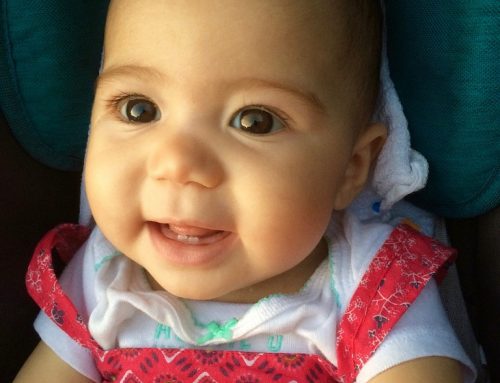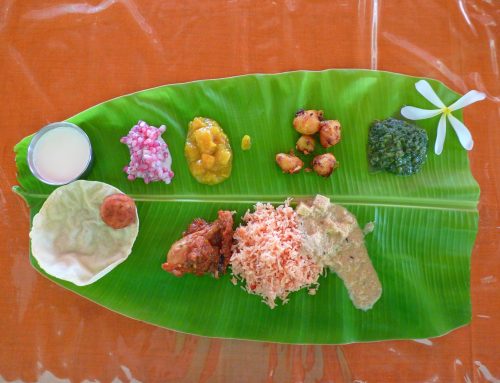One of the things that blew me over as a new mother was the length of the vaccination chart. This list was almost as long as my just arrived newborn. Besides receiving vaccines at birth, my little one was going to be picked and prodded with needles over the next decade and a half of his life. And it starts right away from birth, even though his arm was barely wider than the syringe. As he grew, it got harder to convince him to sit still and allow his doctor to do the needful. But the thought of my child protected from diseases like typhoid, hepatitis B, polio and even chickenpox was a liberating one. (I remember the pox as a kid. It was the ghastliest and most agonising two weeks of my childhood. I’m only too eager to spare my kids the same experience.)
Our government has placed a heavy emphasis on vaccination or immunisation. There are government clinics, announcements and campaigns that convince the reluctant Indian mother to venture forth and allow medically certified professionals to inject or dose her beloved child. There has been criticism in the west. A whole movement which declared vaccinations as unnecessary and even potentially deadly. A doctor claimed they caused autism. And even though his research was proven false later, it did lead to a generation of mothers who prevented their kids from getting vaccines.
Let’s get educated about vaccines and their impact.
What are vaccinations? How do they help?
The syringe injected into your child contains micro-doses of the disease. When released into the body, the vaccine triggers the immune system into taking action. The body can recognise the invading germ and activate a self-defence system that eradicates the disease from the body by generating antibodies. This helps your child from contracting the actual illnesses when exposed to it. The virus or bacteria are dead before injection, so your child is in no danger when receiving the shot.Your kid might need booster shots of certain vaccines (like chickenpox, mumps and rubella) over a period to be immunised effectively.
My kids are healthy and clean. Why do I need to vaccinate them?
Simply because mass vaccinations eliminate the possibility of the disease appearing at all. Imagine an entire generation that is unaware of the irritation and discomfort brought on by the measles virus. And now, thanks to the pulse polio plan, future generations are safe from the crippling disease of polio. Vaccines save lives. They also help eradicate diseases. Remember smallpox? Now thanks to vaccination, no one does. It has been eliminated worldwide. There are a plethora of airborne and water-borne diseases that can be prevented with vaccination, reducing child mortality rates substantially.
Does my child need to receive every single vaccine available?
Of course not. From the wide variety of vaccines available in India, here are some of the essential ones:
- BCG vaccine for tuberculosis (newborn baby vaccination)
- Hepatitis A and B vaccine
- Oral polio drops and the injected polio vaccine
- DTP vaccine for diphtheria, tetanus, and pertussis (whooping cough).
- Rotavirus vaccine
- Typhoid vaccine
- MMR vaccine(measles, mumps and rubella)
(For a full list of government-approved vaccines, click here.)
Then there are the optional vaccines, like chickenpox, meningitis and cholera. You can choose whether or not to offer your child vaccines against these. If your child was born premature, or with a serious medical condition, or if you live in a high-risk area, you might want to check with your doctor. Some regions are endemic to certain diseases where the local governing bodies could declare certain vaccinations as mandatory.
Can I opt-out of vaccinating my child?
If the government declares a particular vaccine as mandatory, it may be difficult to avoid them, especially if given in schools. However, you can skip the other vaccines, even the essential ones, if you choose. Keep in mind that you need to ensure you are well informed of any repercussions. If you are planning to (or are in the process to) migrate to a developed country, it might make sense to do so. Always, discuss your options with a trustworthy paediatrician before taking any action. If you do decide against vaccination, be prepared in case of a social backlash. Other parents might not be accepting of your choice. To know about parents who opt out of vaccination, check out this Facebook group.
Government versus private? Which one is better?
Our government is very keen on vaccination to reduce child mortality due to common childhood diseases. The ongoing pulse polio drive and the more recent MMR vaccine initiative is indicative of their commitment. There are government clinics set up across major cities and towns that offer free vaccines to everyone. Private clinics and hospitals charge a higher premium for the services offered. So which one is better? That is hard to define. It depends entirely on your geographical location, and the facilities offered in your area. Private clinics can be held accountable as they are offering a paid service. (Mind you, these baby vaccination costs can add up to quite a big amount, while public clinics are free.) While there are many public and private clinics that boast of high sanitation values and qualified medical staff, it’s best to check out your nearest one before you take your child. If the clinic meets your expectations, go for it.
However, some critical vaccines, like oral polio, are only given through government-approved drives. So you may have to stand in line at a public clinic to receive the injection. These are always free, though.
During your child’s vaccination years, keep these pointers in mind:
- A vaccination chart provided by your paediatrician will help you keep track of every dose and the appropriate age for administering them.
- One can also sign up for the free government SMS reminder service.
- Most doctors don’t recommend giving vaccines to a sick child.
- Some vaccines can cause fever (up to two days) and some discomfort. Check with your doctor what is normal and what isn’t before the shot is given.
- Some vaccines are ‘painful’ and ‘pain-free’. Many doctors prefer the painful one as it is considered more effective. Consult with your paediatrician before taking the call.
Conclusion
As parents, it’s hard to make medical decisions. We don’t know the intricacies of the scientific research done. We don’t understand how Pharma companies design the formulas for the vaccinations. We often feel helpless. Should we? Shouldn’t we? Will there be a fall out later? All we can however do is to trust our instincts. And follow a plan we think is best for our children. It also helps to seek out doctors and paediatricians who value their service, above their paycheques. So whether you choose or don’t choose to vaccinate your child, just make sure you have all the facts before you.
Disclaimer: The blog post is not meant to diagnose or offer medical advice in place of your paediatrician. Kindly check with your primary doctor before making any decisions regarding your child.






Leave A Comment